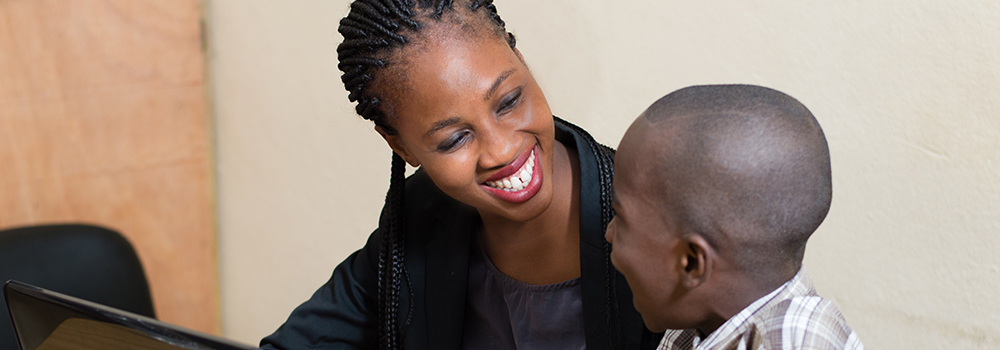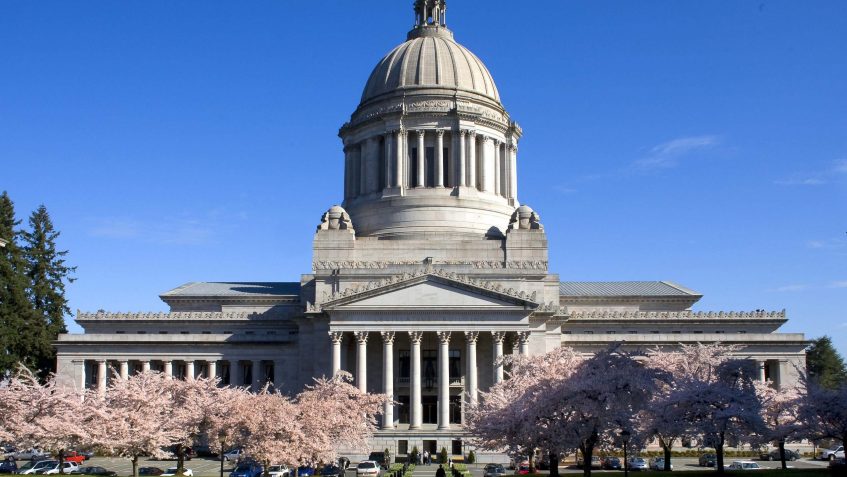Friends:
Last year was a year like no other with the emergence of a once-in-a-century pandemic. A highly contagious and deadly virus brought nearly every aspect of our society to a halt and forced us to completely restructure how we live, work, and socialize. As of the time I’m writing this, more than 2.2 million people have died from the coronavirus, including 437,000 people in America.
The public health crisis has had a devastating impact on the service sector, small businesses, workers, tenants, landlords, schools, teachers, and our students the most. But with experience comes opportunities to build a better Washington and America. The Legislature is committed to helping families and small businesses through this crisis. Within just three weeks of opening day, lawmakers approved a bill that provides nearly $2 billion in unemployment insurance tax relief for businesses and increases the minimum weekly benefit to help workers. This is just the first of many relief packages we will be approving this session.
Washington state started 2021 from a stronger place than originally predicted. Healthwise, our case, hospitalization, and death rates have been much lower than other states, due in large part to Governor Inslee listening to and heeding the advice of dedicated public health experts. Making decisions based on science – not politics – has saved lives. As of this writing, two regions including the Puget Sound, have moved back into Phase 2 which will allow for limited indoor dining, sports and fitness activities, and social gatherings. I remain hopeful that if we all continue to do our part by wearing masks, washing our hands, and staying socially distant, the rest of the state can move into the next phase as well.
While we aren’t out of the woods just yet, there will be a time when we can all go back to our favorite coffee shops, music venues, and movie theaters, and resume our pre-pandemic lives. This newsletter highlights just some of the major issues the lawmakers will be working on at the Legislature this session to help families and small businesses get through this ordeal.
As always, you can find more information on what I’m working on at sdc.wa.gov/Kuderer. And you can reach me with your questions, comments, and concerns at patty.kuderer@leg.wa.gov. I will be meeting with constituents and stakeholders via Zoom this session, so please reach out if you’d like to meet.
Sincerely,

Patty Kuderer
State Senator
48th Legislative District
The 2021 Legislative Session
Despite the progress we’re making in Washington state in getting the virus under control, it is still not safe to conduct in-person, indoor work for non-essential business. Organizations that can allow employees to work remotely are still encouraged to do so.
The Legislature was never designed to operate in a remote setting, yet that’s what we’ll be doing for the 2021 legislative session. There may be a few bumps along the way, but we are committed to getting the people’s work done as safely as possible.
For more information on how the 2021 Remote Legislature will work, please visit leg.wa.gov and sdc.wa.gov
COVID-19 Recovery

Washington entered the pandemic with one of the most robust safety nets in the nation: an expanded Medicaid program, one of the healthiest unemployment trust funds, a portable paid family and medical leave benefit, and strong support for higher education and technical training. These programs provide a solid launching point for our economic recovery. Legislators now need to provide immediate, targeted relief to those hit hardest—people at risk of a housing, food, childcare, or job crisis, as well as small businesses that are struggling to stay afloat.
Vaccine Distribution
The vaccine rollout got off to a rough start. Poor planning and communication at the federal level has complicated vaccine distribution logistics, but these issues will get resolved with the new Biden Administration. Our state Department of Health has made adjustments to their plan as well and has set a goal of 45,000 vaccinations per day in the coming weeks.
I look forward to getting my vaccine and will patiently wait for my turn to do so. I hope others will do the same. In the meantime, we must continue to be vigilant in wearing masks in public, practice social distancing, and refrain from social gatherings with people outside our immediate households. Even after receiving a vaccine, people should still follow best practices – including mask wearing.
Please visit doh.wa.gov to find out when you’ll be eligible to get the COVID-19 vaccine.
Small Business

There’s no question small businesses have been hit especially hard during the public health crisis. Aid from the federal government has been woefully insufficient, putting additional pressure on states to help their struggling small businesses survive.
Many businesses small, medium, and large across Washington are about to see their unemployment insurance rates skyrocket due to pandemic-related layoffs. My colleague, Sen. Karen Keiser, is sponsoring SB 5061 to provide $750 million in relief to all employers impacted by the 2020 “Stay Home, Stay Healthy” order, and will prevent over $790 million in tax increases in 2021 for all employers. Over the 2021-2025 time period the bill is expected to cut employer taxes by a total of approximately $1.9 billion. I support these commonsense measures.
And while the details are still being discussed, there’s broad support among lawmakers to provide additional economic relief beyond the Paycheck Protection Program grants and CARES Act resources. Small businesses are the economic engine that drives our state, and the Legislature will take action to help struggling businesses stay afloat during the public health crisis.

K-12 Schools
The pandemic forced school districts to quickly switch to remote learning, where many remain today. Lawmakers and legislative staff had nine months to prepare and build systems in anticipation of a mostly remote legislative session in 2021. All 295 public school districts had to devise emergency plans in just a few days on how to finish out the 2019-20 school year in a virtual environment. And those efforts were immediately followed by creating plans to conduct an entire school year online.
Every teacher, student and parent has had to deal with many challenges in this new learning environment. Simply shifting from traditional in-person learning to remote learning was challenging enough, but the shortage of childcare help truly put working families in a bind. My deepest admiration goes out to all the administrators, teachers, students, parents, and community leaders that made this possible. That said, we know there is more the state must do.
The Senate Early Learning & K-12 Education Committee is hard at work on emergency funding measures to retain employees, improve childcare accessibility, and helping our students and teachers get back into the classroom as safely and quickly as possible. This includes ensuring schools employees have early access to vaccinations.
The lessons learned from this pandemic have highlighted the need for permanent structures to be in place for the next time we face a public health crisis to ensure each and every Washington student has equitable access to tools and resources they need for their education. Broadband access is especially critical at a time when most learning is being done remotely. The state has made some key investments in previous years to expand broadband access, especially to rural communities, and there will be more done to build on that progress.
I’m excited for the return of in-person learning for K-2 students in Bellevue Public Schools with hopes of grade levels returning to the classroom soon.
Eviction Crisis

Two years ago the Senate created the Housing Stability & Affordability Committee to focus on housing issues affecting our state. As chair, I worked with my colleagues to pass legislation reducing housing instability and homelessness, and increasing the inventory of truly affordable housing. The Legislature also enacted policies around density and increased investments in the Housing Trust Fund. Housing supporters from all backgrounds called our work historic.
But our work is far from complete. And with clear connection between local communities and housing needs, my committee has been renamed to Housing & Local Government. I am excited to continue as chair, working with local city and county officials as they plan, develop and build housing to fit the unique needs of their communities.
We face additional challenges with the public health emergency still impacting virtually every aspect of our lives, including housing and homelessness. Homelessness was a major problem for us even before the pandemic emerged. It was the #1 issue of concern identified in a Crosscut poll released at the start of this year.
I have worked the entire interim in collaboration with my Senate and House colleagues, advocates, stakeholders, and designated state, executive, and judicial agencies to craft housing policies to help those most impacted by the Covid crisis – renters, landlords, seniors, people experiencing homelessness, especially youth and foster youth. This includes a measured approach to eviction for nonpayment of rent, foreclosure forbearance and assistance programs for, and creating dedicated revenue sources for the Emergency Rental Assistance Program, funded with both federal and state dollars. This program is intended to be a bridge – not a cliff – that will remain in place for the next time a public health emergency hits.
There will also be bills to increase housing inventory, like the multi-family housing tax exemption and a bill to give a three-year property tax exemption for accessory dwelling units (ADUs). Our work on homelessness continues with re-envisioning the shelter model. The Covid-19 public health crisis showed us that congregate shelters are obsolete and that there are better, more efficient and humane ways to help people out of homelessness and into permanent housing.
Finally, we know these problems disproportionately impact communities of color, especially Black communities. As lawmakers and community leaders move forward to address these challenges, we must ensure we’re looking at solutions through an equity lens so that the recovery helps ALL communities.
This will be a large focus of our work in the Senate Housing & Local Government Committee in 2021 and I look forward to hearing your thoughts on ways to move Washington’s housing policies forward.
Rebuilding Trust Through Police Reform
While 2020 will largely be remembered for the pandemic, it was also the year that a large portion of the country opened its eyes on police brutality and the long overdue need for reform of our law enforcement agencies.
Thousands peacefully protested in city streets all across America to take a stand against police brutality and the inequitable treatment of people of color in our criminal justice system. Thanks to the strength of the voices lifted in protest, this time of incredible pain and renewed trauma has created an opportunity to make historic policy changes and craft equitable and compassionate laws.
This year, the Legislature will work to enact several reforms and accountability measures to make our communities safer and begin to rebuild trust. Among just a few of the ideas on the table for discussion:
- Banning chokeholds
- Demilitarizing state and local police forces
- Statewide bodycam requirement
- Prohibiting law enforcement officers from covering their badge numbers while on duty
- Strengthening anti-bias and de-escalation training
- Making sure officers dismissed from one agency for misconduct cannot be rehired with another law enforcement agency.
Additionally, it is important to improve the overall professionalism and diversity within our law enforcement ranks. That is why I sponsored a bill to address police certification to make some common sense changes – raising the eligibility age from 20.5 to 23, lengthening the probationary period, and requiring two years of education beyond high school.
My bill also incentivizes a more diverse applicant pool by expanding the use of extra points for relevant life experiences such as volunteering in the Peace Corps, working with organizations that address homelessness and domestic violence, and proficiency in a second language. These are just some of the ideas up for discussion and I’m sure there will be others. Feel free to let me your thoughts on the proposals.
Firearms Safety

Another top priority of mine this session will be firearm safety. As we saw around our country and here in Washington this past year, more and more people are bringing weapons to protests.
One of my bills, SB 5038, will prohibit open carry of firearms at public demonstrations and state legislative buildings. I’m fine with gun ownership for sport and self-defense. I am not fine with guns being used to intimidate and stoke fear in others. No one needs a gun to exercise their first amendment rights at a public rally or protest – they need their voice.
I’ve also sponsored a bill to ban semi-automatic weapons to limit their availability in our communities. I also co-sponsored a bill to restrict high capacity magazines. High capacity magazines enable those with evil intent to maximize carnage. The tragic shootings in Las Vegas and Thousand Oaks were especially lethal because the shooters used the types of magazines this bill would prohibit. Here at home, the shooters in both Mukilteo and Burlington used large capacity magazines to end eight lives far too early.
Weapons of war have no place in our communities. Of that I have no doubt.
Vaccine Safety
Are you curious about how COVID-19 vaccines are being made? Watch the video below to learn how the vaccines were developed safely and efficiently.

